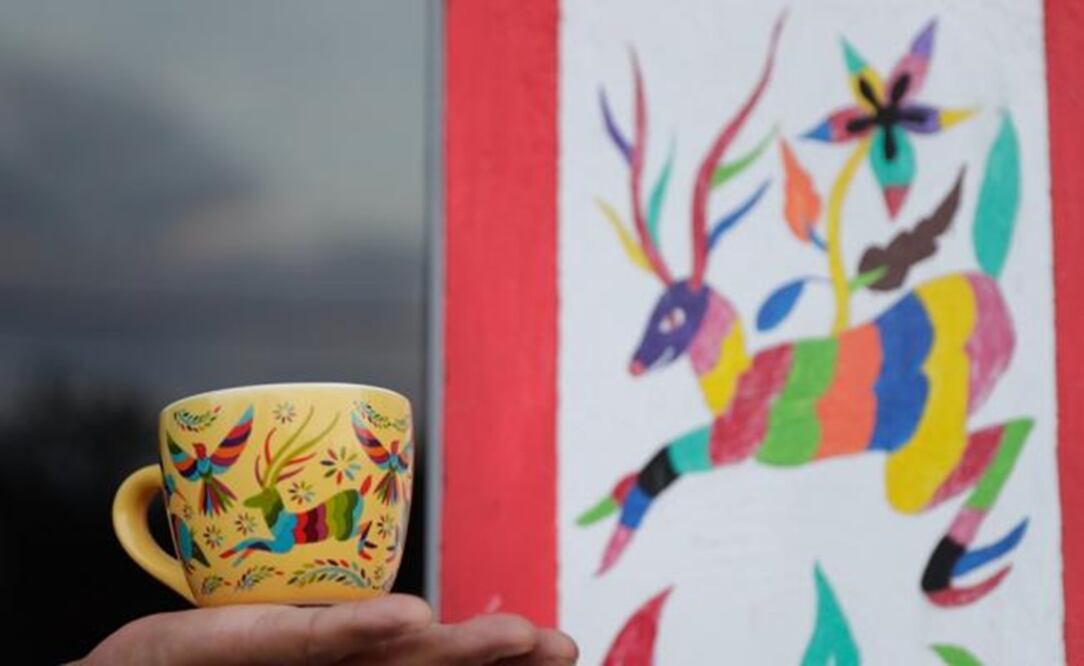Más Información

Sheinbaum entrega Viviendas del Bienestar en Veracruz; Infonavit denuncia irregularidades en créditos

Caso Ryan Wedding: de exesquiador olímpico a ser considerado "El Chapo moderno" por EU; esto es lo que sabemos

Tras captura de "El Botox", realizan cateos en 21 inmuebles en localidad de Cenobio Moreno, Michoacán; aseguran droga, armas y radios

Presentan Frente Nacional de Personas Juzgadoras; Yasmín Esquivel pide posponer elección judicial 2027
The particular way in which the native towns of Mexico view the world has been depicted in their art and crafts. However, several corporations have exploited their creations over the years, and now one stands accused of copyright infringement and iconography theft.
Artisans from the town of Tenango de Doria, Hidalgo , have filed a lawsuit against two different large corporations. Adalberto Flores and Angélica Martínez, his wife, have accused Nestlé México of using their designs without authorization in the corporation's own products.
Among the classic Hidalgo designs are a deer, a hummingbird, and an armadillo, which are featured in a set of collectible teacups for their product Chocolate Abuelita .
The teacups were launched in 2014. Since September 2016, the artisans filed a lawsuit against Nestlé before the Mexican Office of the Attorney General for alleged copyright infringement. In order for the lawsuit to proceed, they had to register their embroideries before the National Copyright Institute.

Other artisans from this Otomi community have also recently been victims of alleged infringement by a Spanish company, which has generated profits from the embroideries Tenango de Doria is famous for.
The Mango corporation sells garments for $1,599 MXN and $899 MXN with designs allegedly taken from the artisans' embroideries.
Kenia Montiel, Undersecretary of Social Engagement and Artisan Promotion of the Ministry of Social Development says the inhabitants of Tenango de Doria share a unique worldview which the legal area of the Ministry is currently analyzing to join the artisans in filing a lawsuit before the Public Prosecutor's Office.

And last year, the website Change.org also filed a petition for a clothing brand to stop using the heritage of Mexico's textile artisans.
Internet user Claudia Muñóz published that the brand Rapsodia was taking advantage of the opportunity inequality and markets so the creators couldn't sell products at fair prices.
And another case took place at the end of 2015, when French designer Isabel Marant was subjected to a scandal after she reproduced the huipil embroidery of the indigenous Mixe people of the Santa María Tlahuitoltepec to use in one of her blouses.

When the company Antik Batik took Marant before the courts, the designer acknowledged the Mixe influence of her design. Isabel Marant took down the blouses from shop windows – which sold at $ 290 USD each.
“They need to be sold, but the production, the profits, should be for the Mixe people , not for other people or companies,” said at that time Carmelitana Vázquez, manager of education and cultural affairs of Tlahuitoltepec.
am
Noticias según tus intereses
[Publicidad]
[Publicidad]










